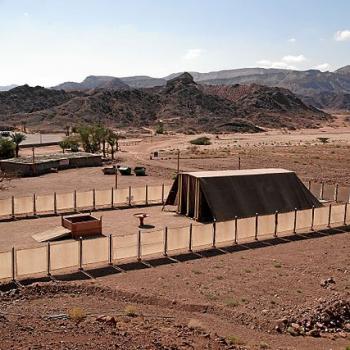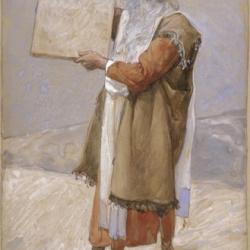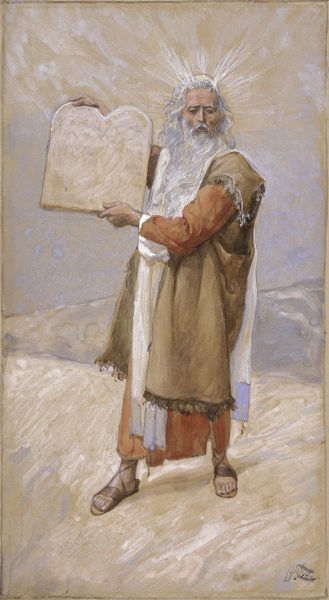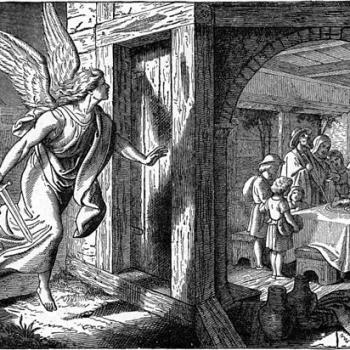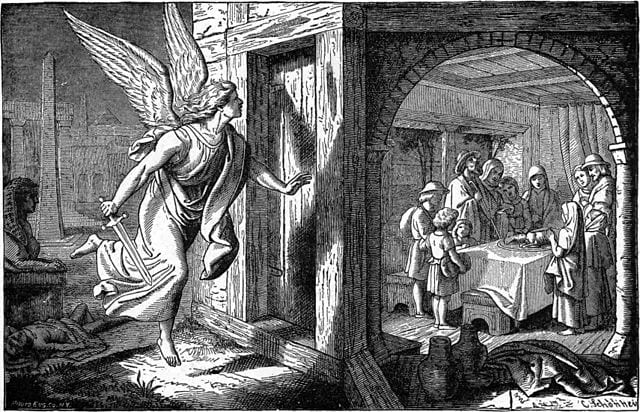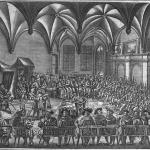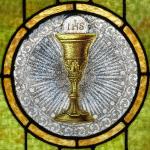
Ward Ricker is an atheist who (as so often) was formerly a self-described “fundamentalist”. He likes to poke holes in the Bible and “prove” that it is a terrible and “evil” book, not inspired, hopelessly contradictory, etc. He put together a 222-page book called Unholy Bible (2019): available for free as a pdf file. It contains 421 couplets of passages that he considers literally contradictory, and 256 more couplets of not technically contradictory but “problem” passages (according to him). Ward wrote in his book: “I . . . am including here only what I consider to be the more firm examples of contradictions. . . . I do not want to include examples that are ‘weak’ and will be easily refuted. I have made my best judgment.” Ward also wrote to me:
[M]any Bible critics (“atheists” or otherwise) will use some pretty ridiculous arguments . . . I have screened out those bogus claims that some critics make and have published my own book . . . of contradictions that I and others have found in the Bible that are clearly contradictions. (letter to National Catholic Register about one of my articles there; reproduced in my first reply)
He issued a challenge for anyone to take on his alleged contradictions. After my first reply, he wrote a 5 1/2 page article suggesting in-depth dialogue. I responded, explaining in depth why I thought dialogue between us would be unfruitful, for many reasons. He then accused me (among other things in his two replies) of “hypocrisy” that “knows no bounds.” This is, of course, against my discussion rules, which forbids such rank insults, so he was promptly banned from my blog, and I replied: “I was exactly right in my judgment that no dialogue was possible. It never takes long for the fangs to come out if they are there.”
But I had already stated: “I may still take on several of your proposed contradictions, just so I can have opportunity to show how very wrong atheist contentions are (which is one thing Christian apologists do).” This series represents that effort. Mr. Ricker can respond on his page as he sees fit. He can still see my posts. His words will be in blue. To search any of this series on my blog, paste “Ward’s Whoppers #” in the search bar on the top right of my blog page. He uses the King James Version for his Bible verses. I will use RSV in my replies.
*****
213.
Proverbs 3: 13 Happy is the man that findeth wisdom, and the man that getteth understanding.
Vs:
Ecclesiastes 1: 18 For in much wisdom is much grief: and he that increaseth knowledge increaseth sorrow.
Q: According to Solomon (the author of both of these books), does wisdom make a person happy or sad?
***
214.
Proverbs 26: 4 Answer not a fool according to his folly, lest thou also be like unto him.
Vs:
Proverbs 26: 5 Answer a fool according to his folly, lest he be wise in his own conceit.
Q: Should one answer a fool “according to his folly”?
***
216.
Ecclesiastes 1: 2 Vanity of vanities, saith the Preacher, vanity of vanities; all is vanity.
Vs:
Ecclesiastes 5: 18 Behold that which I have seen: it is good and comely for one to eat and to drink, and to enjoy the good of all his labour that he taketh under the sun all the days of his life, which God giveth him: for it is his portion.
Q: Is it vanity to enjoy one’s labor?
***
217.
Ecclesiastes 8: 12 Though a sinner do evil an hundred times, and his days be prolonged, yet surely I know that it shall be well with them that fear God, which fear before him
Vs:
Ecclesiastes 8: [continuing] 13 but it shall not be well with the wicked, neither shall he prolong his days, which are as a shadow; because he feareth not before God.
Q: Will sinners’ days be prolonged?
***
Ignorance reigns once again on the atheist front! Will it ever end? No, it won’t. This is not contradictory because of the nature of proverbial literature, which is a poetic form that makes “sayings” about life. Such sayings by nature are generalizations; therefore, they can admit of many exceptions, or have differential application according to situation and personal discernment. And that’s why these couplets are not contradictory. Christian writer Marty Solomon ably sums up this understanding, in his article, “Wise Sayings that Are Generally True” (3-13-14):
[T]he Proverbs are not comprehensive in their wisdom. What I mean by that is that there is very often an exception to the proverb. The proverb is not “hard and fast, black and white” — but as we’ve already looked at, this is true to life, anyway. The proverbs would have to be very limited in their scope. But this is exactly what the proverb is about. I teach our students to remember that proverbs are “wise sayings that are generally true.” . . .
*
I certainly do not mean to take away from the wisdom or the depth of the Proverbs; to the contrary, the wisdom of the Proverbs is incredibly, well, wise. They are profound, concise, and straightforward. And while they may not be all-encompassing for every situation at every time, their gutsy wisdom continues to stand the test of time. This is the wisdom and function of Proverbs.
But there are ways of understanding Proverbs 26:4-5 in particular that are not even logically contradictory, if we were to consider the statements — for the sake of argument — in a non-proverbial “absolute” manner:
Two sides of a truth. To “answer a fool according to his folly” is in Proverbs 26:4 to bandy words with him, to descend to his level of coarse anger and vile abuse; in Proverbs 26:5 it is to say the right word at the right time, to expose his unwisdom and untruth to others and to himself, not by a teaching beyond his reach, but by words that he is just able to apprehend. (Barnes’ Notes on the Bible)
The former verse forbids to answer a fool foolishly: it is better to be silent than so to answer him. If he be in a frame plainly incapable of receiving a wise answer, do not answer him at all (Isaiah 36:21). But where he needs to be convicted of folly, lest he go away with the notion of his own superior wisdom, answer him so as to confute him. Unanswered words may be deemed unanswerable: answer, then, not in folly, but to folly-the answer which his folly requires. Compare Jesus’ silence and His answer, in conformity with both precepts, Matthew 26:62-64, before Caiaphas; John 19:9-11, before Pilate; Luke 23:9, before Herod. Regard to the difference of times and circumstances harmonizes the seeming contrariety of the two precepts. Discern the “time to keep silence, and the time to speak” (Ecclesiastes 3:7). So Jesus (Matthew 21:23-27; Matthew 22:46). Where it is only thine own honour that is at stake, be silent (as Moses meekly was when taunted by Aaron and Miriam, Numbers 12:2-4): when the glory of God or the good of thy neighbour is involved, speak. The reason added by Solomon draws the distinction, Do not answer when thy answer will make thee like the fool: answer when thy silence will give him a handle for self-conceit. (Jamieson, Fausset, and Brown Commentary)
***
219.
Isaiah 40: 28 Hast thou not known? hast thou not heard, that the everlasting God, the LORD, the Creator of the ends of the earth, fainteth not, neither is weary?
Vs:
Exodus 31: 17 It is a sign between me and the children of Israel for ever: for in six days the LORD made heaven and earth, and on the seventh day he rested, and was refreshed.
Isaiah 43: 24 … thou hast wearied me with thine iniquities.
Q: Does god get weary?
***
The last two verses are examples of non-literal anthropopathism, which I explained in some detail in the previous installment, whereas the first one is literal. Christian, biblical theology holds that God the Father is unchangeable and is a spirit: both of which preclude the possibility of fainting or getting weary.
***
Photo credit: King Solomon, by Simeon Solomon (1840-1905) [public domain / Wikimedia Commons]
***



